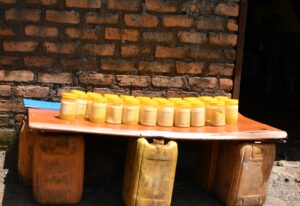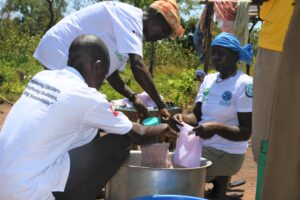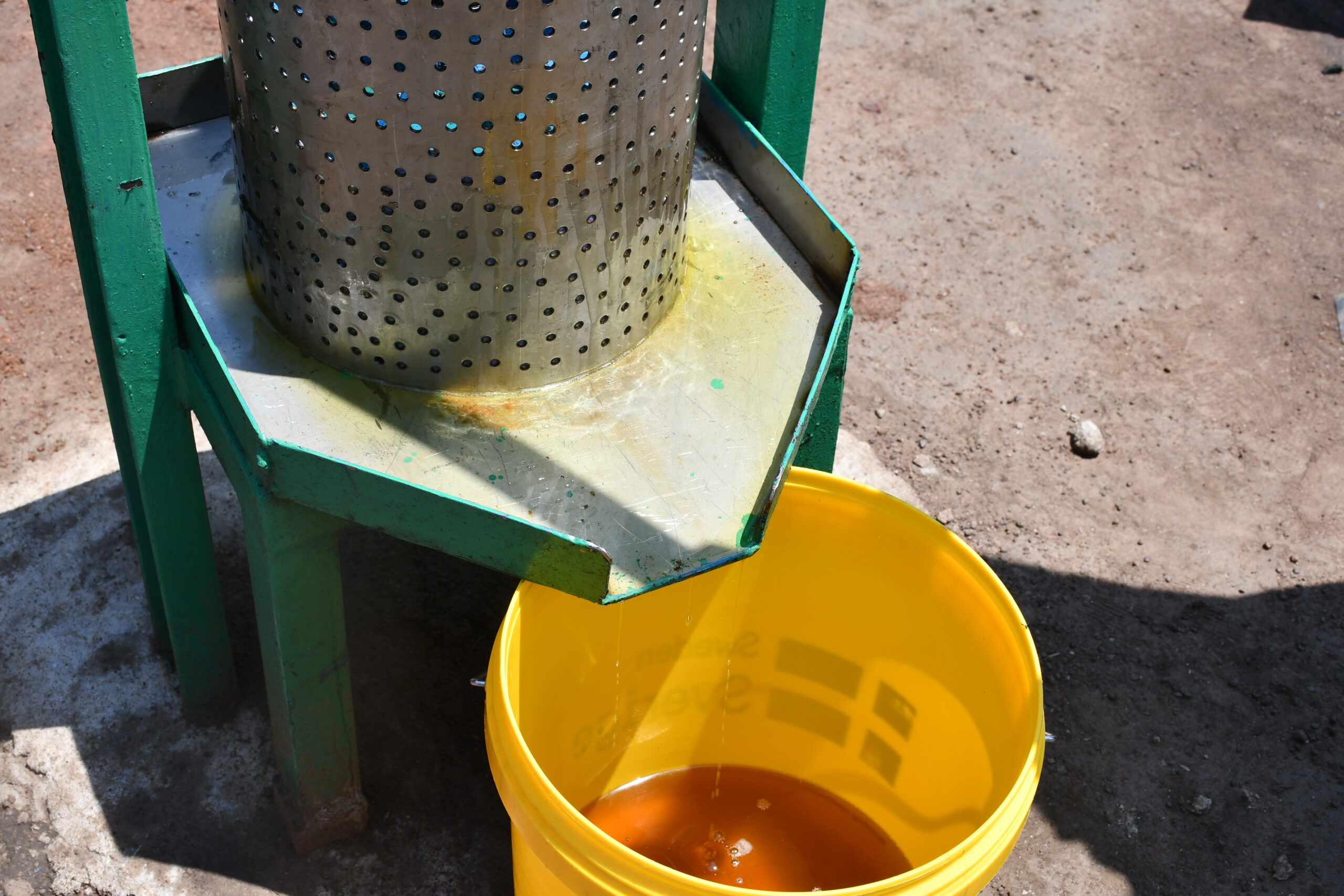By: Ginaba Lino
A group of women farmers specializing on shear nut oil production in Wulu county of Lake state has realize significant increase on their income level due to the use of modern machines for oil production.
This group were empowered by Oxfam resilience and livelihood project, and supported with different machines to ease their work as they continue with their oil production activities in Lake State.
Ms. Mary Hayat Kenned, the Chairperson of Mitorodo Women Shea-nut group explained that now it’s easier to produce more litters of oil than using the rudimentary methods they had before.
“The team from Oxfam gave us these machines, now it is more profitable than the one we used to produce using hand, now in a day if I have enough shear-nuts, I can get 20 Litters or 25 Litters it depends on size of the seeds you have. So, it is more beneficial than the local ways of extracting oil which we used to do before. The money we are getting from the oil is helping us in many ways, it helps us in paying school fees of our children, we can now afford treatment for ourselves and our families.”
Mary states that they sell a litter of shear butter at ten (10,000) thousand South Sudanese Pounds (which is equivalent to $2).
She regrets lack of transport for delivering their products to Rumbek town or Juba for wider market reach.
“The main challenge we are facing is the issue of transport, transportation from here to Rumbek town is a problem and we don’t have market within this area, sometimes if you want to go with the oil to Rumbek town, you have to look for someone within the area who can buy one so that you can use that money to go to Rumbek town to sell many.”

She calls on government and other humanitarian agencies to continue empowering women and provide them with a store to keep their finished products safe.
Apart from the lulu machine given to women group in Mitorodo, Oxfam has also provided grinding mills and built store for farmers in Domoloto payam of Wulu County.
In a separate interview Chairperson of another farmers group, Peter Magok Ajac said Oxfam is doing a lot in supporting community of Domboloto area.
Magok stated that Oxfam have also supported them with seeds and other agricultural tools.
“Before Oxfam offer this grinding mill machine to us, women were in problem because getting grinding mill was not easy, and people use to hire motorbike to go to a farther distance to grind flour. With the presence of the grinding mill, women can cook very fast because they are not using hand like before, even the price at the grinding mill is very affordable to the community, members since these are vulnerable people,” Chairperson narrates.
Oxfam funding from Bundesministerium für wirtschaftliche Zusammenarbeit und Entwicklung or BMZ is supporting farmers with seeds and other agricultural tools as a form of value addition under the project Building Resilience of Crisis affected communities in Jonglei and Lake state.

The BMZ project aims to build resilience in targeted crisis-affected communities by improving food security, income, and basic infrastructure as well as effective management of risks and shocks. This will in turn foster inclusive and peaceful societies in Jonglei state (Akobo and Nyirol counties) and Lake state Wulu county. The project has so far benefited 45,705 People, 21,938 male, 23,767 female and 2285 people living with disabilities.
Oxfam is leading the overall project implementation and coordination, explicitly implementing and engaging in the three outcomes (food security and livelihood, WASH & good governance). The partner is engaging in the food security & livelihood, and good governance outcomes.
South Sudan continues to suffer from climate induced challenges-like flooding and drought.
Over 70% of the country has been affected by floods for the past 6 consecutive years. This is aggravated by the economic crisis, ongoing conflict in neighboring Sudan fueling hunger levels in majority of communities within South Sudan.

